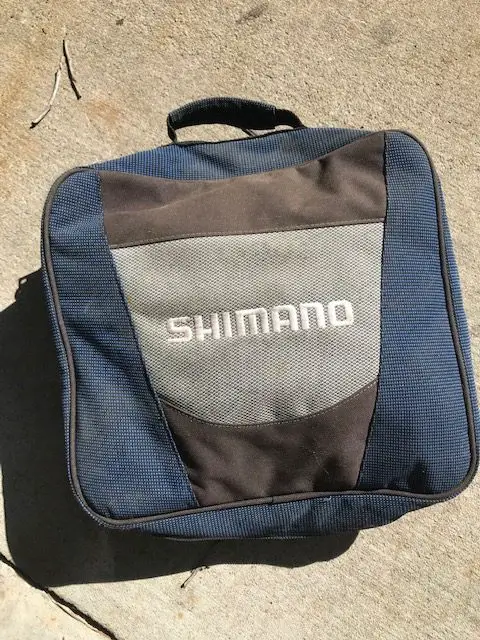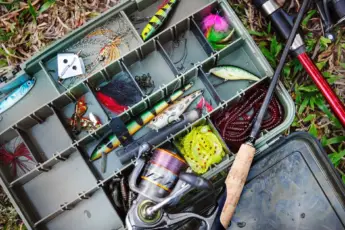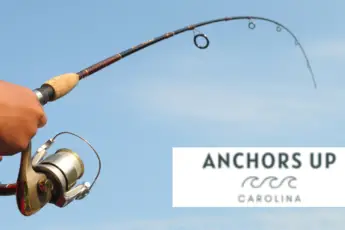Anglers have a multitude of options when it comes to storing fishing lures. Whether fishing saltwater or freshwater through Georgia, South Carolina, and North Carolina, lures are widely used to catch fish. Most importantly, storing them in a space where they remain organized and avoid becoming tangled. The best method is by placing fishing lures in a bag. The bag is specifically called a lure bag. Here is what to know about fishing lure bags.
What Is The Purpose Of A Fishing Lure Bag
The purpose of a fishing bag is to store and organize fishing lures. Lure bags are convenient to grab from the shelf in a garage and carry to the car before loading on a boat or venturing to the shore.
Flip the bound sleeves when determining which lure is best suited for the day you spend on the water. The clear bags allow you to peer in without opening each storage compartment.
What Kind Of Lures Does A Lure Bag Hold
Fishing bags hold a wide variety of lures. The types of fishing gear stowed in bags include offshore, freshwater, inshore lures, jigs, soft plastic worms, spinners, worm harnesses, and more. We have gone as far as storing daisy chains in our tackle bag.
Are Lure Bags For Fresh Or Saltwater Fishing
Bags specifically designed to hold fishing lures are intended for freshwater and saltwater use. The bag’s purpose is to remain organized, whether storing freshwater or saltwater lures.
Due to the corrosive nature of salt, bags utilized in harsh environments are prone to more rapid deterioration. Zippers that become frozen result from the failure to clean the exterior properly. Additionally, the interior of the storage vessels becomes sticky.
Can Lure Bags Get Wet
Bags intended to hold fishing lures are capable of getting wet. Take into consideration sea spray while operating in rough conditions, wet decks from rinsing fish blood, and rain.
A fishing bag does not remain back at the house but instead travels with you to the shore or on the boat. Because it is exposed to the elements it is designed to withstand the onslaught of water.
Sea Spray
Whether running a boat in freshwater or saltwater, rough conditions caused by high winds create spray. The spray is challenging to contain as it soaks the watercraft, people, and gear.
While we always try to stow away gear in dry locations, at some point, it requires being exposed to the elements when pulling the lures needed for the day.
Rain
When standing on the shores or boating, rain is unavoidable. Do your best to cover the bag, but it is designed to repel heavy soaking rains.
Wet Decks
High seas and rinsing cause wet decks. The floor is rinsed frequently to remove blood and fish slime. When bags are left on or near the ground, they become wet. Make your best effort to keep the bags elevated.
How Do You Maintain A Fishing Lure Bag
Care and maintenance vary based on exposure to salt or freshwater. Bags do not require frequent cleaning when used in freshwater versus saltwater.
When used in freshwater, rinse periodically to remove the accumulation of dirt. In saltwater, on the other hand, wash away the accumulated salt after each use. Failure to do so will cause the zippers to corrode. Corrosion inhibits the movement making it more challenging to access the contents within.
Where Can You Buy Fishing Lure Bags
Fishing lure bags are available online and in brick and mortar stores. The bags come in many shapes and sizes and are designed to hold different types of lures, including jigs and plugs.
To save time shop online. We recommend the Mustad Rigger Bag. The Mustad Rigger Bag contains ten or twenty bound plastic storage bags, is waterproof, and durable.
How Much Do Fishing Lure Bags Cost
Fishing bags are low in cost when considering the benefits they provide for transporting and keeping lures organized.
High-quality fishing bags vary in price ranging between fifteen and forty dollars. Purchase the bag that best su
its your needs.
Pick Up a Lure Bag To Keep Your Gear Organized And Easy To Grab
Nothing beats the convenience of stowing fishing lures in a bag. Open the locking pouches and stow your gear rather than keeping in a tackle box where they become tangled when tipped. Fortunately, they come at a fair price and work for both fresh and saltwater anglers. We use them regularly to remain organized. Pick a few allowing for freshwater and saltwater gear to remain separate. Label each bag for convenience.






